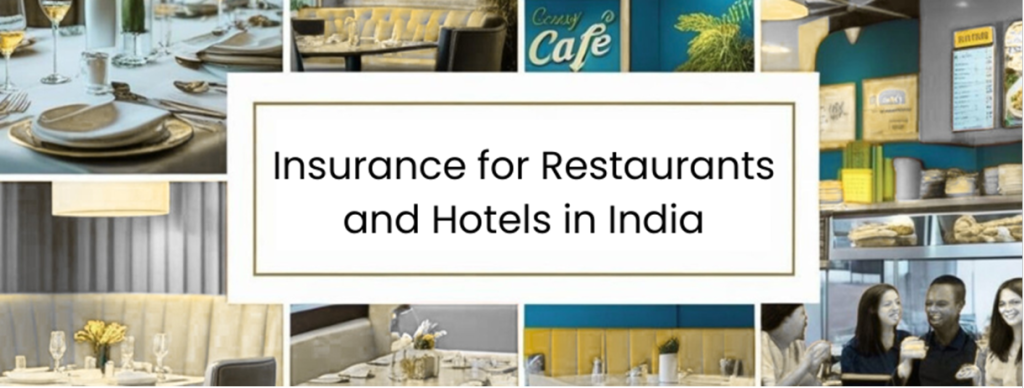India’s hospitality industry is one of the fastest-growing in the world. From five-star hotels in metropolitan cities to local restaurants and cafés, the sector caters to millions of customers every day. But running a restaurant or hotel also comes with significant risks—fire accidents, food contamination, guest injuries, staff-related mishaps, or even cyber fraud. One incident can cause financial losses worth lakhs or invite legal liabilities.
That’s why having the right insurance cover is essential for restaurants and hotels in India. It not only protects assets and staff but also ensures compliance with Indian laws. Here are the key policies every hospitality business must consider:
1. Fire and Property Insurance
Commercial kitchens and hotel facilities are always at risk of fire due to gas cylinders, fryers, ovens, and electrical equipment. In India, fire mishaps are among the leading causes of business interruption.
Fire and Property Insurance covers:
Buildings, interiors, and furniture
Kitchen equipment and machinery
Stock of food and beverages
Losses from natural disasters such as floods, earthquakes, and cyclones
Many landlords and banks in India mandate Fire Insurance for leased spaces or business loans.
2. Commercial liability insurance
Hotels and restaurants welcome hundreds of customers daily. Accidents can happen—a guest slipping on a wet floor, food poisoning, or injury due to faulty infrastructure.
Commercial General Liability (CGL) protects against third-party claims for bodily injury, property damage, or medical expenses. It also covers legal defence costs.
In India, the Public Liability Insurance Act, 1991 makes it compulsory for certain hazardous businesses, but even for hospitality, this cover is strongly recommended to avoid heavy compensation claims.
3. Product Liability Insurance
Food quality and hygiene are critical in India, where the Food Safety and Standards Authority of India (FSSAI) enforces strict guidelines. A single incident of contaminated food can result in lawsuits, regulatory action, and reputational loss.
Product Liability Insurance provides cover if a customer falls sick due to food served at the restaurant or hotel. It takes care of compensation, medical expenses, and legal costs.
4. Workmen Compensation Insurance
Hotels and restaurants employ chefs, waiters, housekeeping staff, and delivery personnel who work in high-risk environments. Kitchen accidents, burns, slips, and road accidents (for delivery staff) are common.
Under the Employees’ Compensation Act, 1923, Indian employers are legally required to provide compensation in case of injury, disability, or death of workers.
Workmen Compensation Insurance ensures that this liability is covered without burdening the employer financially.
5. Other Important Covers for Hospitality Businesses
Burglary Insurance – protects against theft of stock, equipment, and cash.
Employee Health Insurance (Group Mediclaim) – ensures staff welfare and is popular post-COVID.
Business Interruption Insurance – covers loss of income when operations are halted due to fire or natural disasters.
Fidelity Guarantee Insurance – protects against losses from employee fraud or mismanagement.
Conclusion
Running a restaurant or hotel in India requires more than great service—it requires risk management. Fire, food contamination, customer claims, employee accidents, and cyber fraud are real threats that can disrupt operations.
Mandatory policies like Workmen Compensation Insurance are a legal requirement, while essential covers like Fire, Public Liability, Product Liability, and Cyber Insurance provide long-term security. With the right insurance portfolio, Indian hotels and restaurants can focus on delighting customers while staying financially protected.

